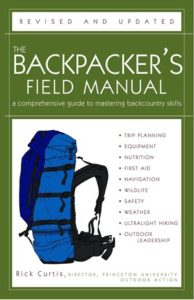The New Zealand Mountain Safety Council (MSC) has issued a press release regarding the New Zealand Coroner’s Report on the deaths of six high school students and a teacher on April 15, 2008 in a canyoning accident on a program run by the Sir Edmund Hillary Outdoor Pursuits Centre (OPC). I blogged about the original incident back in April 2008. Having been to OPC and knowing some of the staff I understand how devastating death on a program can be.
In the two years since the tragedy the families have struggled to understand what happened as has the lone instructor who was leading the trip. No criminal charges were filed, but OPC was charged under the Health and Safety in Employment Act that included:
- The Centre’s obligation to ensure the safety of other people in the place of work.
- The Centre’s obligation to ensure that its employees’ actions didn’t expose others to avoidable risks.
- The Centre’s obligation to protect the instructor who went into the gorge with the school party.
In March 2009 OPC was fined $40,000 and ordered to make $440,000 in reparations to the families of those involved in the accident under the Health and Safety in Employment Act. Since the accident a number of administrative staff working at the Centre have resigned, many of them understandably coping with the tragedy.
The Coroner’s Report is a factual and often chilling account of what transpired. It paints a detailed picture of an accident taking place, a series of events that cascaded into tragedy and points out weaknesses within operating and program structures that are not unique to OPC. The Coroner’s Report is something that every outdoor program should read. The thirty-nine page report describes in detail the incident itself and the other events and structures at OPC. Numerous contributing factors were identified by the Coroner:
- Risk Analysis
- Required Assessments of weather impact on activity
- Instructor qualifications for a Gorge trip
- Historical knowledge of past flooding events
- Swimming ability and connecting swimmers
- Escape routes and refuges
- Radio reception
- Rescue plan
- Throwbagging
- Staff to student ratio
- Monitoring the environment
- Non compliance with policies
- Audit/Accreditation
- Independent Review
In his summary the Coroner is quite clear on the major factors that lead to this accident:
“Regrettably, lack of environmental awareness, lack of instructional use of historical information, instructor inexperience, lack of proper assessment before the gorge was entered to ensure there was no significant chance of water levels rising above a safe level during the trip, lack of or inadequate communication when in the gorge between the instructor and the Field Manager or OPC base staff, failure to implement a crisis plan and dispatch response teams in a timely manner, under-estimation of risks, and complacency contributed to the tragic deaths of six students and one teacher.”
This was a tragedy for all of New Zealand and for outdoor programs around the world. I post this blog in part to respond to the call from the MSC for people to learn from the tragedy. Like other significant tragedies in outdoor education that have been extensively written about (ex. Lessons Learned by Deb Ajango), the Coroner’s Report is a reminder, and a wake-up call for all outdoor programs. I strongly encourage all of you to read the report in detail, share it with your staff, and carefully review the contributing factors in this incident. I think every program will find at least one familiar thread that applies to your operation. I know I did.
‘There, but for the grace of God, go all of us.’
Download the Coroner’s Report


